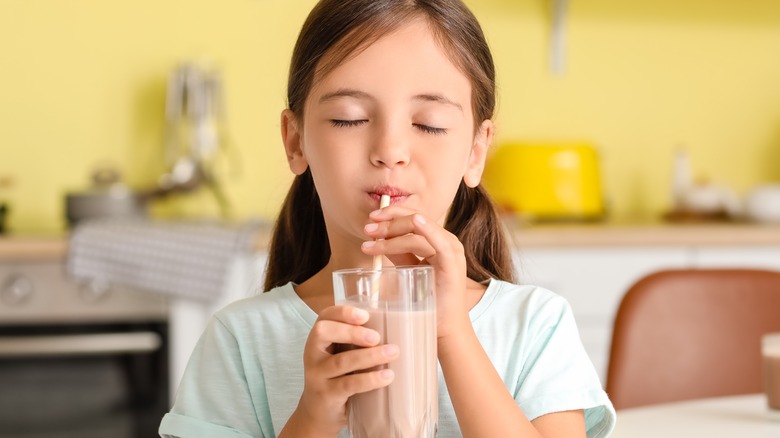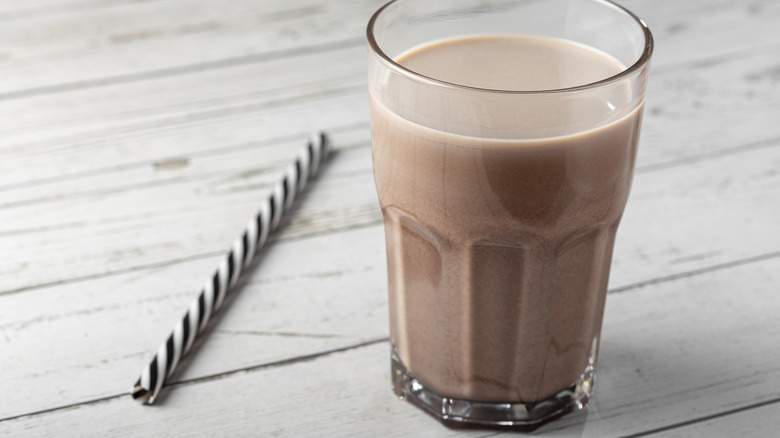Here's How Much Caffeine Chocolate Milk Has
You likely loved chocolate milk as a kid. It was a treat on certain days, and maybe you indulge in a cold glass of chocolate milk every once in a while to remind you of those times. But you know chocolate has caffeine, so you might think twice about having some as a sweet treat before you go to bed.
According to the U.S. Department of Agriculture's Food Data Central, a cup of nonfat chocolate milk has 2.48 milligrams of caffeine. Compare that to coffee, which can range between 70 and 140 mg depending on the type of brew. The amount of caffeine in a cup of decaf also depends on the brew and how it's been decaffeinated, but the average cup will still have about 2 mg of caffeine. Your favorite cup of hot chocolate will have 5 mg, hot tea has 26 mg, and a soft drink has 22 mg of caffeine.
The Mayo Clinic recommends keeping your daily caffeine intake to 400 mg or less. Women who are pregnant or nursing should limit it to 200 mg or less. Columbia University says that caffeine can affect childhood development, so it's best to keep children away from caffeine or limit it to levels where you don't notice any side effects such as anxiety, diarrhea, or restlessness.
Pros and cons of drinking chocolate milk
Nonfat chocolate milk has 8 grams of protein to help build muscle and aid in recovery from exercise. According to a 2012 review in Medicine and Sport Science, drinking chocolate milk after a workout and then two hours later can be more effective in helping your body rebuild than drinking expensive recovery beverages. The sugar in chocolate milk plus the protein puts the carb-to-protein ratio at 4:1, which is the same ratio as other recovery drinks. Chocolate milk has 315 mg of calcium and is also a great source of vitamin D, which are both good for bone health.
If you're trying to cut back on sugar, though, chocolate milk's 20 grams might not be the best choice. The added sugar in chocolate milk can put you at a third or half of your daily limit for sugar. Too much sugar can contribute to obesity and tooth decay in children. Chocolate milk also is off-limits for people who are lactose intolerant.


